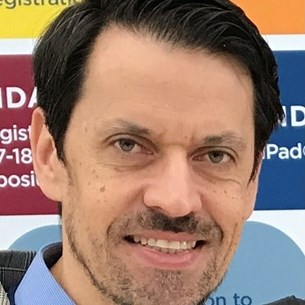Meeting
2019 ASCO Annual Meeting

Latin American Cooperative Oncology Group (LACOG), Porto Alegre, Brazil
Max S. Mano , Rafaela Gomes , Carlos H. Barrios , Gustavo Nader Marta , Cynthia Villarreal-Garza , Antonio Luiz Frasson , Cinthya Sternberg , Renan Clara , Sergio D. Simon , Gustavo Werutsky , Fadil Çitaku
Background: Despite the growing complexity in the healthcare sector, physicians rarely receive formal training in leadership skills. In a previous survey, Citaku et el identified a set of leadership competencies (LC) which were evaluated by North-American (NA) and European (EU) leaders involved with medical education. We aim 1) To apply this same survey to a population of Latin-American (LA) physicians from the oncology community and related areas who hold leadership positions of various levels; 2) To compare the results with those of the previous survey and 3) To perform subgroup analyses within the LA cohort. Methods: The survey was sent to close to 8.000 members of contributing medical societies from LA countries. In addition to the 63 questions with 5 possible responses, we also collected data on type of institution (private vs public), country of practice, main specialty, gender, age, years of experience in oncology and years of experience in leadership position. Results: We collected a total of 217 responses on a web-based tool. LA leaders placed the highest value on task-management competencies(91,37% of `important` or `very important` responses vs 87,0% for NA/EU;p < .0001), followed by self-management(87,45% vs 87,55%; p = NS), social responsibility(86,83% vs 87,48%; p = NS), innovation(86,69% vs 85,31%; p = NS) and leading others(83,31% vs 84,71%; p = NS). Social responsibility, which was first in importance in the NA/EU survey, was only third in the LA survey. Subgroup analyses revealed significant interactions which will be fully presented. Conclusions: We successfully applied the survey to a population of LA medical leaders from the oncology community and related areas. LC valued by LA leaders somewhat differ from those valued by their NA/EU counterparts, implying that cultural aspects might influence the perception of desired/required LC. We also detected significant variations in the responses within the LA population. Our data might indicate that current physician leadership training programs should be tailored to suit specific needs and cultural aspects of each region. Further validation of this survey in other clusters of world culture is warranted.
Disclaimer
This material on this page is ©2024 American Society of Clinical Oncology, all rights reserved. Licensing available upon request. For more information, please contact licensing@asco.org
2019 ASCO Annual Meeting
Poster Session
Education Research and Professional Development
Medical Education and Professional Development
Education Research
J Clin Oncol 37, 2019 (suppl; abstr 10517)
10.1200/JCO.2019.37.15_suppl.10517
10517
96
Abstract Disclosures
2023 ASCO Quality Care Symposium
First Author: Caroline Schenkel
2023 ASCO Quality Care Symposium
First Author: Marissa Marti-Smith
2023 ASCO Quality Care Symposium
First Author: D'Ambra Dent
2022 ASCO Annual Meeting
First Author: Bishal Gyawali